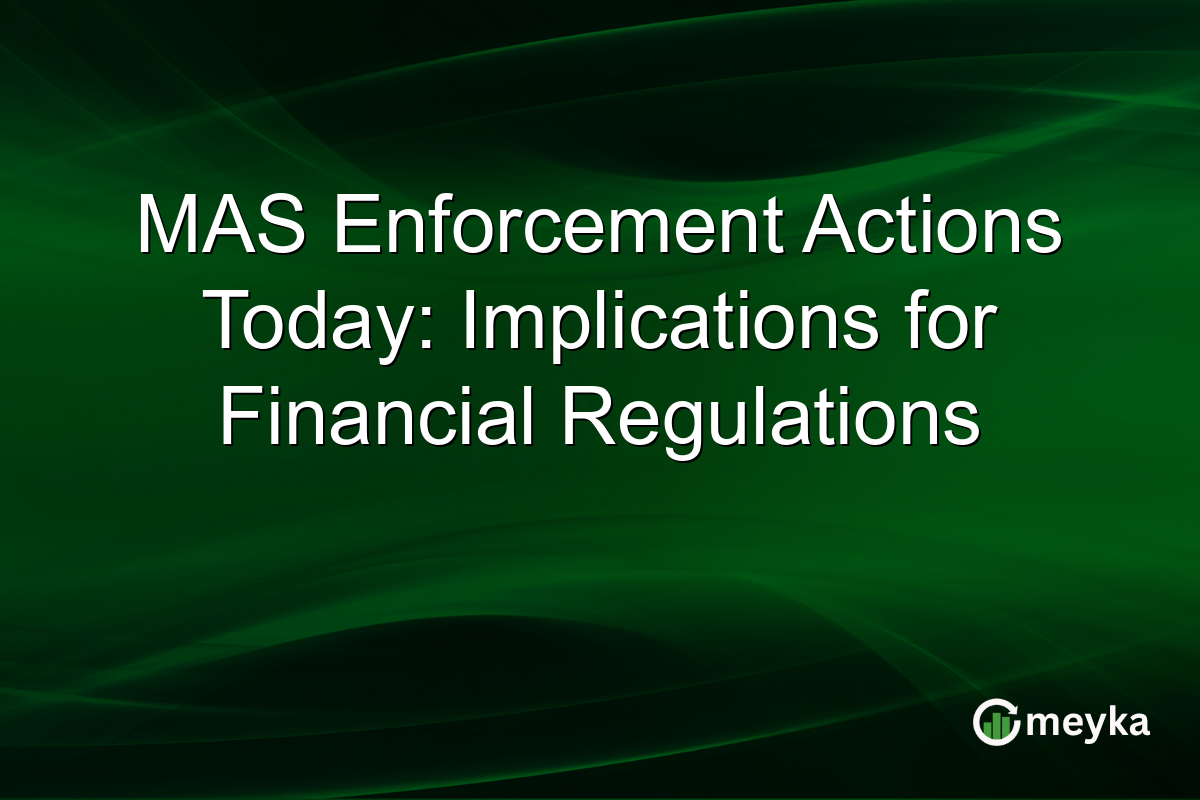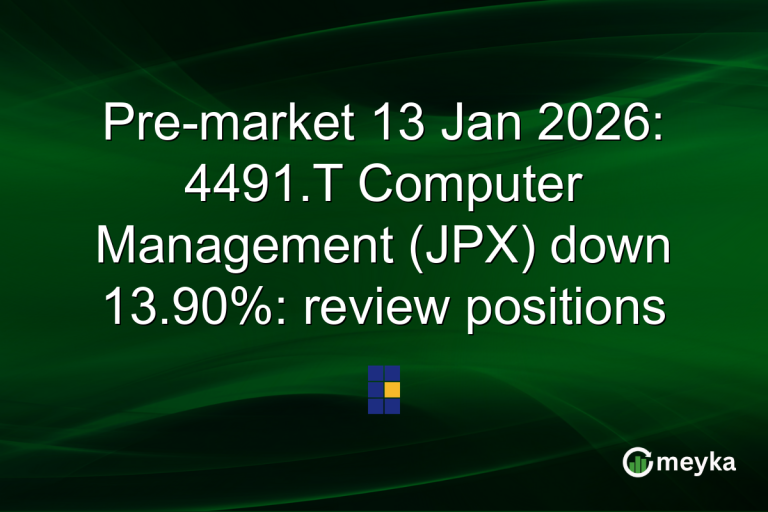MAS Enforcement Actions Today: Implications for Financial Regulations
The Monetary Authority of Singapore (MAS) has recently been in the spotlight due to its enforcement actions. These actions, especially the fine imposed on Ang Yew Jin Eugene, highlight the stringent regulatory landscape in Singapore. Investors and financial institutions are closely examining these developments to understand their impact on compliance and financial regulations. Such moves by MAS reinforce the authority’s commitment to maintaining integrity in Singapore’s financial system.
Continue Reading on Meyka
This article is available in full on our main platform. Get access to complete analysis, stock insights, and more.
Read Full Article →





